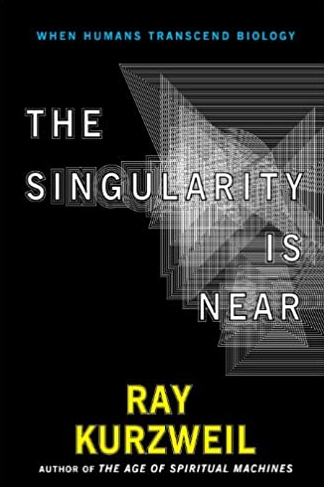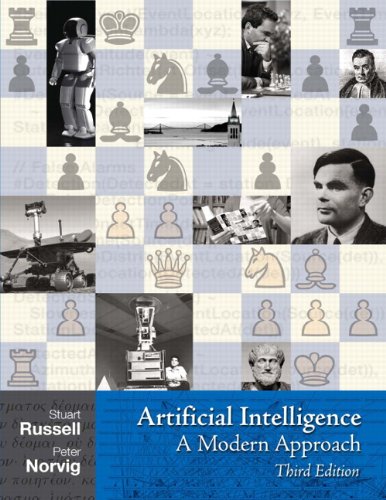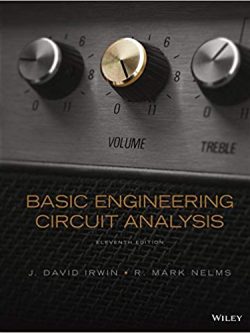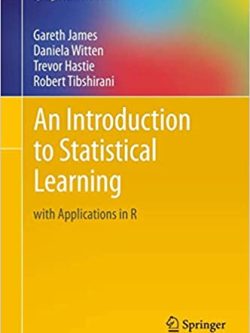The Singularity Is Near: When Humans Transcend Biology Ray Kurzweil, ISBN-13: 978-0670033843
Original price was: $50.00.$8.74Current price is: $8.74.
The Singularity Is Near: When Humans Transcend Biology by Ray Kurzweil, ISBN-13: 978-0670033843
[PDF eBook eTextbook]
- Publisher: The Viking Press; 1st edition (September 22, 2005)
- Language: English
- 672 pages
- ISBN-10: 0670033847
- ISBN-13: 978-0670033843
Renowned inventor Kurzweil (The Age of Spiritual Machines) may be technology’s most credibly hyperbolic optimist. Elsewhere he has argued that eliminating fat intake can prevent cancer; here, his quarry is the future of consciousness and intelligence. Humankind, it runs, is at the threshold of an epoch (“the singularity,” a reference to the theoretical limitlessness of exponential expansion) that will see the merging of our biology with the staggering achievements of “GNR” (genetics, nanotechnology and robotics) to create a species of unrecognizably high intelligence, durability, comprehension, memory and so on. The word “unrecognizable” is not chosen lightly: wherever this is heading, it won’t look like us. Kurzweil’s argument is necessarily twofold: it’s not enough to argue that there are virtually no constraints on our capacity; he must also convince readers that such developments are desirable. In essence, he conflates the wholesale transformation of the species with “immortality,” for which read a repeal of human limit. In less capable hands, this phantasmagoria of speculative extrapolation, which incorporates a bewildering variety of charts, quotations, playful Socratic dialogues and sidebars, would be easier to dismiss. But Kurzweil is a true scientist—a large-minded one at that—and gives due space both to “the panoply of existential risks” as he sees them and the many presumed lines of attack others might bring to bear. What’s arresting isn’t the degree to which Kurzweil’s heady and bracing vision fails to convince—given the scope of his projections, that’s inevitable—but the degree to which it seems downright plausible.
Kurzweil is one of the worlds most respected thinkers and entrepreneurs. Yet the thesis he posits in Singularity is so singular that many readers will be astoundedand perhaps skeptical. Think Blade Runner or Being John Malkovich magnified trillion-fold. Even if one were to embrace his techno-optimism, which he backs up with fascinating details, Kurzweil leaves some important questions relating to politics, economics, and morality unanswered. If machines in our bodies can rebuild cells, for example, why couldnt they be reengineered as weapons? Or think of singularity, notes the New York Times Book Review, as the “Manhattan Project model of pure science without ethical constraints.” Kurzweils vision requires technology, which we continue to build. But it also requires mass acceptance and faith.
Continuing the themes of The Age of Spiritual Machines (1999), Kurzweil further expounds his conviction that the human being will be succeeded by a superintelligent entity that is partly biological, partly computerized. Welcoming this prospect, and regarding it as inevitable, Kurzweil plunges into contemporary technological arenas, particularly genetics, nanotechnology, and robotics. Citing examples from medical devices to military weapons in which human control is increasingly detached from the autonomy of machines, Kurzweil stresses that trends are accelerating in terms of miniaturization and computational power. Eventually, smallness and speed reach a point of development, a “singularity,” with implications Kurzweil says even he cannot imagine. Disinclined to categorize his views as dystopian or utopian, the author recognizes that his vision is profoundly threatening to concepts of human nature and individuality. A closing section on philosophy and ethics accordingly addresses objections to his optimistic predictions. An involved presentation, this is best for readers of the wide-angle, journalistic treatment Radical Evolution (2005), by Joel Garreau.
Ray Kurzweil is a prize-winning author and scientist. Recipient of the MIT-Lemelson Prize (the world’s largest for innovation), and inducted into the Inventor’s Hall of Fame, he received the 1999 National Medal of Technology. His books include The Age of Spiritual Machines and The Age of Intelligent Machines.
What makes us different?
• Instant Download
• Always Competitive Pricing
• 100% Privacy
• FREE Sample Available
• 24-7 LIVE Customer Support






Reviews
There are no reviews yet.